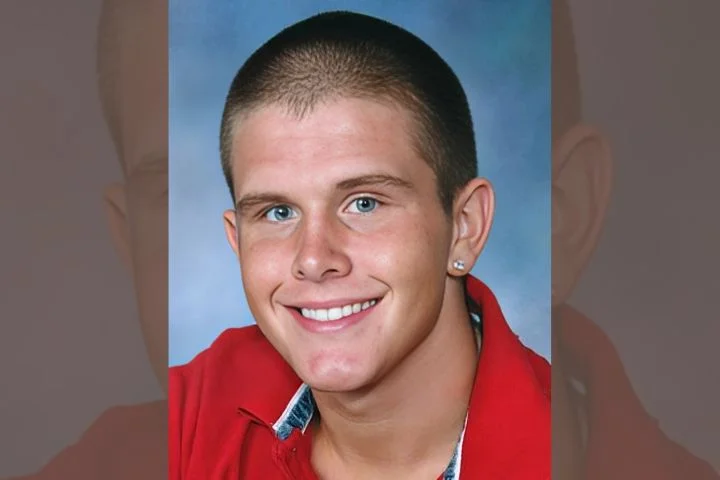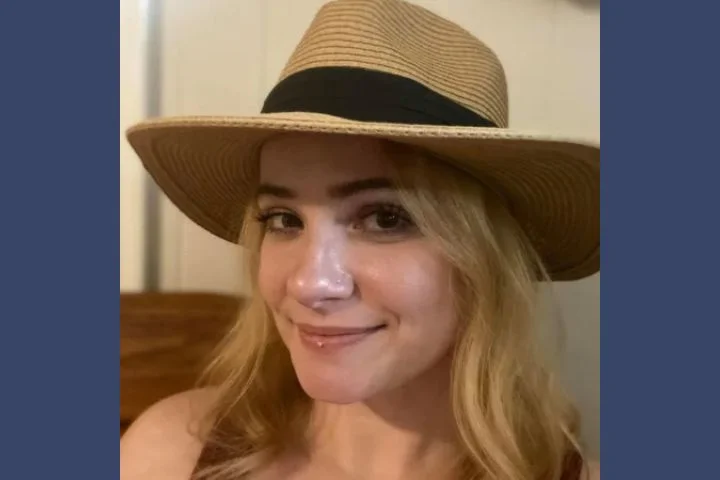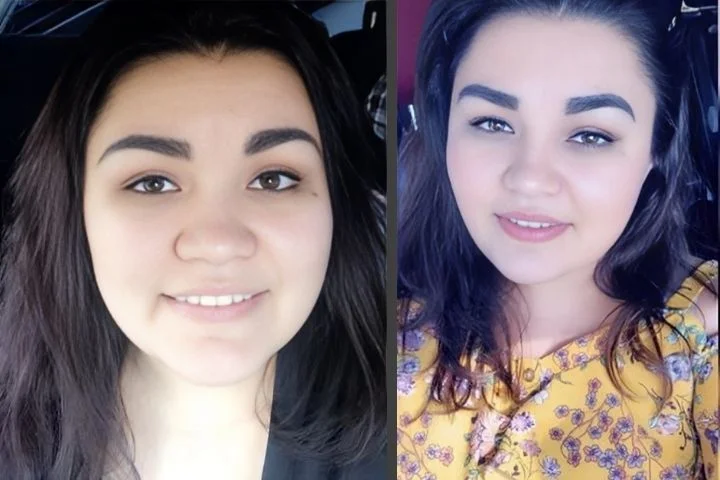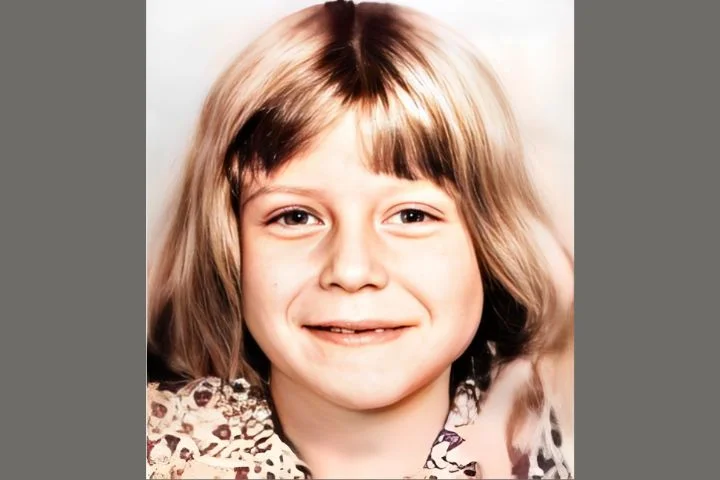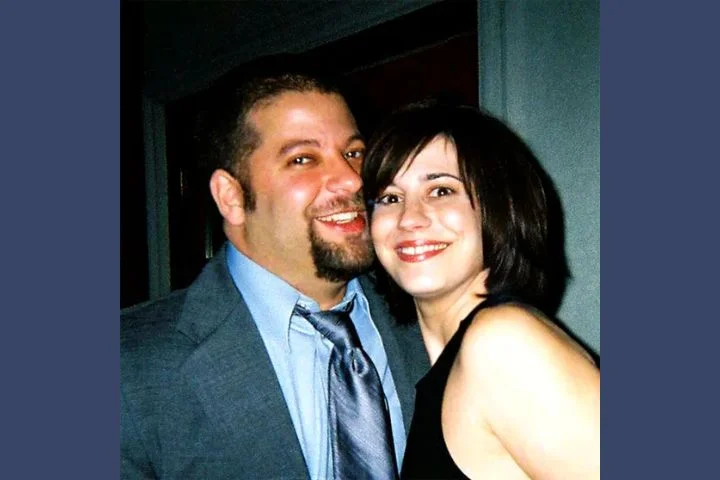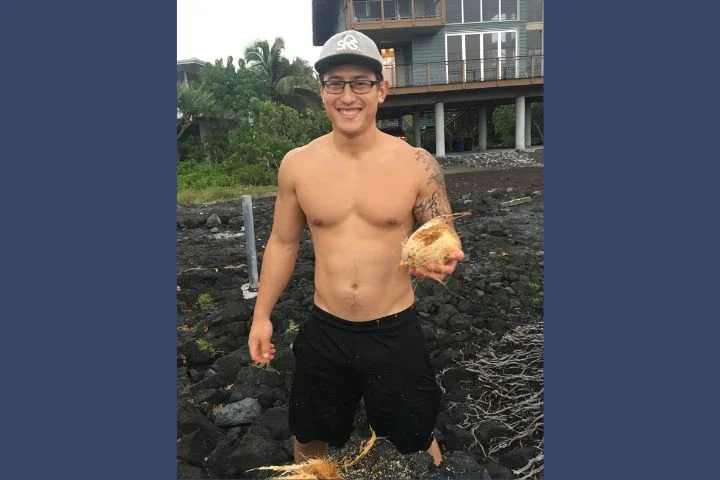Justin Gaines was an 18-year-old freshman at the Oconee campus of Gainesville College, now called the University of North Georgia. Looking to have a good time, he had some friends drop him off at Wild Bill’s entertainment center on the evening of November 1, 2007. Located in Duluth, Georgia, Wild Bill’s catered to a younger crowd on Thursdays; patrons only had to be 18 to enter, though they still had to be 21 to drink. Justin was a regular customer at Wild Bill’s, and had VIP tickets to enter.
Justin came from a large family; he was one of seven kids. His mom Erica had married Steve Wilson, and they both brought children into the marriage. The siblings ranged in age from 13 to 21, and everyone seemed to get along fine. Justin was close with his parents, and though he was living in Athens, GA while going to college, he returned to his Snellville home frequently. He would often spend weekends helping his stepfather with roofing work as a way of making some extra money. He wasn’t the sort of teenager who would go long without contacting someone from his family.
At Gainesville College, Justin was popular and sociable, and found it easy to make friends. This hadn’t always been the case. As a child he was quite chubby and got teased about his weight. In high school, however, he started lifting weights, and the teasing stopped. He lost his baby fat and gained a muscular physique, and he worked out regularly to keep it. He was enjoying his first semester of college and had been getting all As and Bs in his classes, but he was also a known partier. He didn’t let the fact that he was only 18 get in the way of having fun: inside his wallet, he had two fake identification cards, one in the name of Brad Allen, the other Brad Shewe. He used the ID frequently to purchase alcohol, a fact his mother and stepfather had been completely unaware of until after he vanished. Justin didn’t see it as a big deal, he thought of it as a rite of passage for college students and didn’t dwell on the fact that it was illegal.
Wild Bill’s was an enormous venue; it had a maximum capacity of 5000 people. It’s estimated that there were about 3000 people there on the night that Justin disappeared. Justin went to the club alone, but he never had any problem going places without his friends. He simply made friends everywhere he went. He could be seen on surveillance cameras chatting with various people, and it did not appear that he got into any arguments or confrontations with anyone. Yet a few hours after he had been dropped off at the Duluth bar, he appeared to vanish into thin air.
Surveillance footage showed Justin right around the time he is believed to have left the bar. It was around 1:30am, and he can be seen in the lobby, cell phone to his ear. He apparently hadn’t planned a ride home in advance, and he called several friends trying to find someone to pick him up. Unfortunately, none of them could. While Justin does not appear to be overly intoxicated in the surveillance footage, he had been drinking, and that fact alone may have been enough to dissuade him from trying to call his parents as a last resort. They lived about a half hour away, and though they likely wouldn’t have been too pleased about getting a 2:00am call from a slightly inebriated Justin, in hindsight it would have been far preferable.
Since Justin was in college, his parents didn’t expect him to call home every single day. When they didn’t hear from him on Friday, it didn’t set off any warning bells. His mother started to grow concerned on Saturday, and by Sunday she was in a panic. She called the police and reported him missing. Police immediately got his cell phone records to see if they could track him that way, but the last time his phone was used was in the area of Wild Bill’s. He made several phone calls and sent some text messages between 1:30am and 2:00am, clearly trying to get a ride, but his phone went silent after that. Investigators knew that time was their enemy in a missing person case, and since Justin hadn’t been reported missing for three days, they were at a disadvantage.
Police noted that they didn’t have any evidence suggesting foul play, and they would continue to treat it as a missing person investigation until they learned otherwise. A spokeswoman for the Gwinnett County Police Department admitted that the case had slowed down in its second week, as some of Justin’s associates had been uncooperative. It appeared that many of them were afraid of saying something that could get them or someone else in trouble, as they were all underage and alcohol was definitely a factor in the case. Police stressed that they had no reason to suspect that any of his friends were somehow involved.
Two weeks after Justin went missing, members of the nonprofit group Texas EquuSearch came to assist in the search. They were able to launch a large-scale search effort and had access to ATVs, horses, and even helicopters. They hoped to get volunteers to help search, and though only 27 showed up, they were optimistic that they might find something. They searched extensively for three days, and were disappointed when they didn’t find anything leading to Justin.
Even after EquuSearch left, Justin’s friends and family were determined to keep the search going. They hired a private investigator and started a nonprofit organization to pay for billboards, fliers, and other items necessary for the search. Every Thursday night, they would drive to Wild Bill’s and put leaflets about the case on each car in the parking lot, hoping at some point they would reach someone who had seen what happened to Justin.
Three months after Justin was last seen, Gwinnett police acknowledged for the first time that they were working leads on the case that seemed to indicate that foul play was likely. It was something Justin’s family had suspected all along, but it was still hard to hear. Steve Wilson told a reporter that his theory was that his stepson got a ride with someone he shouldn’t have, and it didn’t end well for him.
Although they believed in their hearts that Justin was de*ad, his family wasn’t about to give up looking for him. Erica converted her garage into office space, and looking for Justin became her fulltime job. She organized fund raisers, made buttons and bumper stickers, raised reward money, handed out fliers, set up a telephone tip line, and maintained a web site. Like her husband, Erica believed that Justin had probably been killed by someone who offered him a ride, but she held onto a small sliver of optimism, praying that Justin would come walking through the door.
The Gwinnett police weren’t giving up in the search, either. They noted that, in the first few months of the investigation, they gathered a wide range of items connected to the case as evidence, and 75 of the items had been sent to the GBI crime lab for analysis. They didn’t reveal any specific information on the direction they believed the case was going, but they were optimistic that they would be able to solve it.
Justin should have been celebrating his 19th birthday on March 31, 2008. Some of the other children in the family had also celebrated birthdays since he went missing, and there had been a feeling of sadness that Justin wasn’t there to celebrate with them. His own birthday, however, was almost too much for Erica to bear. She ended up bedridden with a migraine.
On the one-year anniversary of the disappearance, Justin’s parents held a fundraiser to raise money to assist in the search. More than 150 friends and relatives came out to gather around tables decorated with confetti shaped like cowboy boots and eat plates of barbequed brisket, macaroni and cheese, and coleslaw. Those in attendance shared stories about Justin and tried to celebrate his life. It was rough, though, as they didn’t seem to be any closer to getting answers as they had been when he first disappeared. It was getting harder to remain optimistic, but Erica and Steve made sure to keep Justin’s cell phone account activated, just in case.
Time continued to move on with no resolution in the case. By the summer of 2009, the case had been turned over to a cold case detective. Leads came in sporadically, and each one was followed up on, but it was clear that the case had stagnated. Justin’s name was rarely mentioned in the newspaper anymore, despite the family’s best efforts to keep people from forgetting about him.
The family had been through so much already, and they suffered another devastating loss on January 17, 2011. Jeremy Wilson, one of Justin’s stepbrothers, was just 18 years old when he was found de*ad from asphyxiation at home. According to the medical examiner’s office, he had been found with a plastic bag over his head; they were unable to determine if it had been an accident or suicide.
Four years after Justin went missing, investigators made another plea for information in the case. While they still got some tips every now and then, they were convinced there were still people out there who held the clues they needed to break the case. There had been 3000 people, mostly from the local area, at Wild Bill’s the night in question. Someone had to have seen something.
Their request for help in solving the case did result in more tips coming on, but if they learned anything new they kept that information to themselves. They conducted another search of the Gwinnett mall area with cadaver dogs, but didn’t appear to find anything. Once again, the case seemed to go cold.
Suddenly, in the fall of 2015, there was a flurry of activity, and two arrests were made in connection with Justin’s disappearance. Even with arrests made, the case still remained somewhat of a mystery, and many questioned if the people who were arrested actually had anything to do with the case or not.
On September 2nd, Walton County, GA authorities arrested 57-year-old Martin Leonard Wilkie, charging him with concealing the de*ath of Justin Gaines. In the arrest warrant, it was alleged that Wilkie and a man named Dustin Dylan Glass had assaulted Justin in an encounter that ultimately led to him being shot to d*eath. It further alleged that after Justin was de*ad, Wilkie and an unnamed third man then disposed of the body in a black metal toolbox.
All of the information that was alleged in the arrest warrant had been told to police by Dustin Glass, who was in jail on an unrelated matter. He was not charged in connection with Justin’s case, though Walton County Sheriff Joe Chapman referred to Glass as “one of the main persons of interest” in the disappearance. Additionally, a female who claimed she had been present when the assault took place corroborated the story told by Glass.
Thelma Ballew, the mother of Dustin Glass, also backed up his story, but then lied to police about knowing where Justin’s body had been left. Whether or not Ballew actually knew anything about the case or not is still up for debate. She had been arrested on burglary charges in Walton County on August 28, 2008. On August 31, she told police that she had helped Wilkie and another man dispose of Justin’s body in the High Shoals area near the Apalachee River. Taking her at her word, investigators spent three days digging up a number of old wells at the location pinpointed by her, but found absolutely nothing. When it became clear they weren’t going to find Justin where she said they would, Ballew was charged with making false statements to law enforcement officials. She admitted she lied in an attempt to get herself out of trouble.
Despite her misleading statements about where Justin’s body was, Sheriff Chapman believed that she did have information about the disappearance. Gwinnett County District Attorney Danny Porter, disagreed. He claimed that the leads given by Ballew had all been discredited. He didn’t seem to put much faith into anything Glass said, either.
The District Attorney had reason to doubt Glass. The 28-year-old was sitting in a federal prison in Jackson, where he had been sent in April 2015 after a judge ordered him to serve more than 14 years as a repeat drug offender. He had also been indicted in different case in Newton County, where he was charged with conspiracy to commit mu*rder, racketeering, aggravated assault, and participating in gang activity. It wasn’t until he was already in prison, and facing even more time in a different county, that Glass suddenly came forward claiming to have information on Justin’s case.
By 2017, Justin had been missing for ten years, and despite the information given to law enforcement by Glass and Ballew, there has never been enough evidence to actually charge anyone with m*urder. Detectives believe they know what happened to him, but are unable to prove anything.
The current theory, pieced together from various witness accounts, is that Justin, who was carrying quite a bit of cash and was wearing a large diamond stud earring in one ear, caught the attention of some unsavory characters inside Wild Bill’s. They had already identified him as their target hours before he even attempted to leave the bar, and probably followed him into the lobby area. The fact that he didn’t have a ride home made things very easy for them. Investigators believe that once he was outside the bar, Justin was lured into a car, most likely by a female wearing a black dress. They then drove him to a house in Snellville that was crowded with people, meaning there were many possible witnesses.
Detectives believe that Justin was attacked as soon as he arrived at the house in Snellville. Supposedly, he was choked and beaten, and then finally shot to d*eath. Once he was d*ead, they took whatever money he was carrying as well as his diamond earring. His body was taken to a houseboat on Lake Lanier and thrown in the lake. A couple days later, the mur*derers panicked when they realized that his body had floated to the surface, so they retrieved his body from the lake and threw it down a well near the Appalachee river.
It’s important to remember that most, if not all, of the details in this account came from Dustin Glass, and only after he was already in jail on a multitude of charges. While detectives seem to believe he was being honest with them, there is no definitive physical evidence to back him up. They do have a few things that they believe corroborate his story, the first being a diamond earring that was found in his possession. In a photograph taken on the morning that Justin went missing, he can be seen wearing a diamond earring that does look like the one that Justin had. He told police that he had taken it out of Justin’s ear on the night he was killed, but continues to claim he had nothing to do with the actual killing. Police sent the diamond earring he had to the crime lab for analysis, but they were unable to find any DNA linking the earring to Justin.
Investigators have searched many places in both Barrow County and Walton County, but have never found any sign of Justin. The houseboat he was supposedly taken to no longer exists, and neither does the van Glass claims Justin’s body was transported in.
Detectives continue to search for Justin’s remains, and are hopeful that someone who knows what happened will finally come forward with the information needed to close the case.
Justin Gaines was 18 years old at the time he went missing, with brown hair and blue eyes. He was about 5 feet 10 inches tall and weighed around 220 pounds. He was a weightlifter and very muscular. When last seen in Duluth, Georgia, Justin was wearing a gray long-sleeved Abercrombie shirt, ripped jeans, and flip flops, as well as a diamond stud earring. He may use the names Brad Allen or Brad Shewe. If you have any information on Justin, please call the Gwinnett County Sheriff’s Office at 770–513–5000. You can also call the anonymous tip line at 877–270–9500.
In the days immediately following Justin’s disappearance, a woman called the anonymous tip line and spoke about a man who lived near the intersection of Pleasant Hill Road and Club Drive in Lawrenceville. She believed that the man could have been involved in the disappearance. They said this caller sounded as if she were middle-aged at the time, but police have no other information because she opted to stay anonymous. If you are that woman, detectives would love to hear from you again. The same anonymous tip line can still be used, 877–270–9500.
